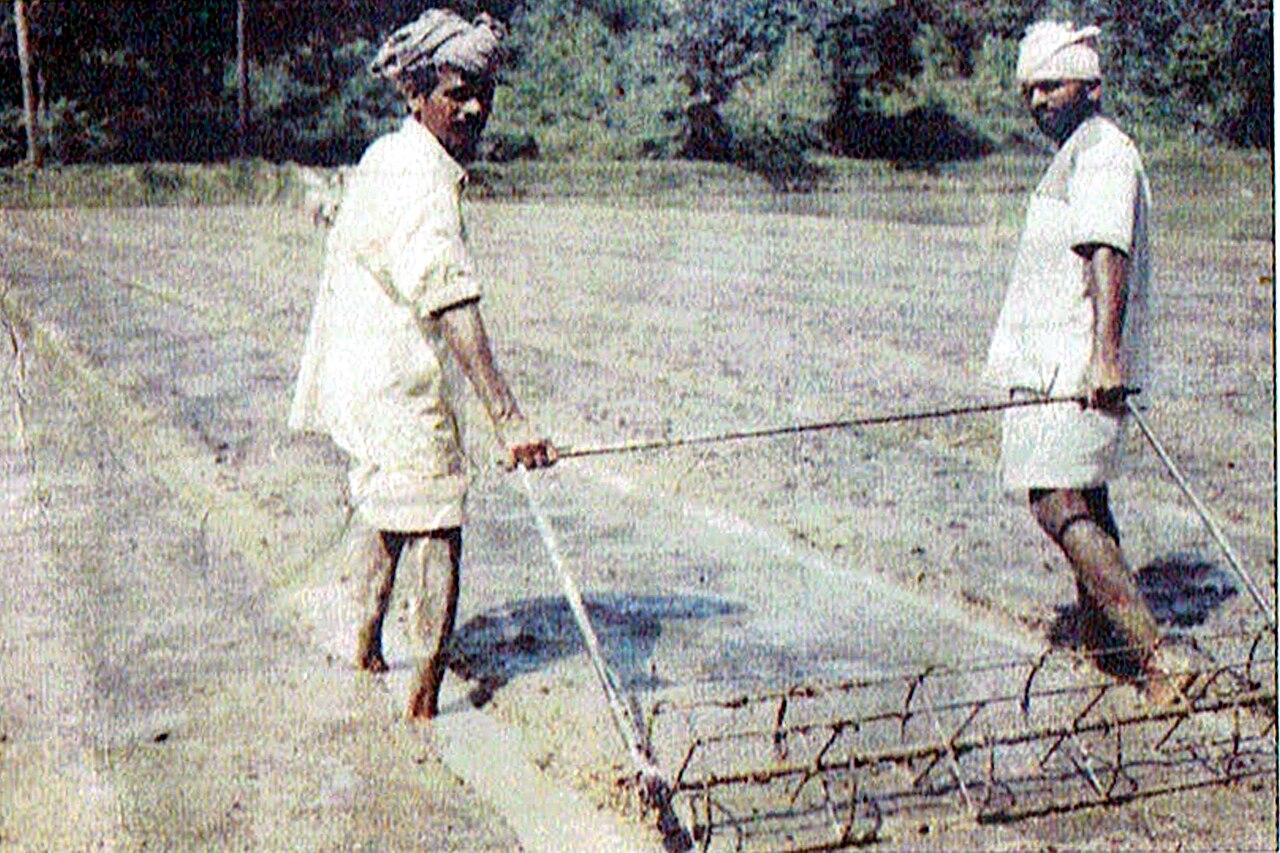Short Summary
An international network of farmers in 50+ countries use open-source agronomy practices via online platforms to improve rice yields by up to five times without pesticides, GMOs or other techniques of industrial agriculture.Website address: sri.ciifad.cornell.edu
Location: Transnational, but based at Cornell University, New York, USA

SRI method of rice paddy cultivation in India.
source ![]()
Profile
Through an informal "open source" network of farmers working globally, SRI enables thousands of individual rice farmers to share information about improving rice yields through agronomy practices. On various global, national and regional web platforms, farmers share technical advice, cultivation guidelines, training materials, data monitoring, etc.
SRI principles have improved crop productivity by up to five times, in more than 50 countries, without the use of pesticides, GMOs or other industrial agriculture techniques. About ten million farmers benefit from the SRI methodology, by one conservative estimate.
SRI-Rice collects, organizes, stores and shares SRI knowledge resources from its partners around the world and from daily Internet searches. This information is shared via its website, social media, a newsletter, research databases as well as videos, photos and presentation channels. An SRI-Rice Team also provides technical advice on agronomic techniques and "backstopping" to field programs in several countries.
"[Our vision is to] reduce hunger and extreme poverty by improving productivity of rice and other crops based on environment-friendly agricultural practices that preserve and improve the natural resource base and help to better withstand changing climate conditions." (Source)
YOUTUBE 8iV8QjVruOQ A lecture by Norman Uphoff summarizing the findings of 15 years of international, collaborative research on SRI
Governance
The SRI team at Cornell plays a key organizing role, but there are dozens of regional and national discussion groups and websites. Knowledge is not copyrighted but made freely available; there is a shared mission; participants consent to decisions; and relevant information is made available to all. Because the shared resource is knowledge, criteria for internal governance dealing with free-riding or setting limits on usage do not appear to be relevant.Friends & Partners
SRI has numerous partnerships with "farmers, researchers, NGOs, government agencies and other stakeholders."Finances
Financing comes from gifts and grants from various foundations, including Jim Carrey's Better U Foundation, the Ohrstrom Foundation, and the West and Central African Council for Agricultural Research and Development.Origin Story
SRI started in 1998 when researchers at Cornell University shared field experiences and reports about rice-intensification methods on its platform.The project drew upon the agricultural innovations of French Jesuit priest Henri de Laulanié working in the highlands of Madagascar in 1983. Local farmers called the agronomic techniques the System for Rice Intensification and established a local NGO, Association Tefy Saina, to promote SRI and rural development in Madagascar.
The Cornell International Institute for Food, Agriculture and Development began working to improve agriculture in Madagascar in 1994, which four years later led to the creation of a new SRI organization and SRI-Rice.
See Also
- Other commons categories that are related to this one's, or specific similar examples
Sources
- Erika Styger, "The System of Rice Intensification and Its International Community of Practice," in Bollier & Helfrich, Patterns of Commoning (Off the Common Books, 2015)
- Styger E, Uphoff N. 2016. The System of Rice Intensification (SRI): Revisiting Agronomy for a Changing Climate. Climate-Smart Agriculture Practice Brief. Copenhagen, Denmark: CGIAR Research Program on Climate Change, Agriculture and Food Security (CCAFS)
- Wikipedia article about SRI